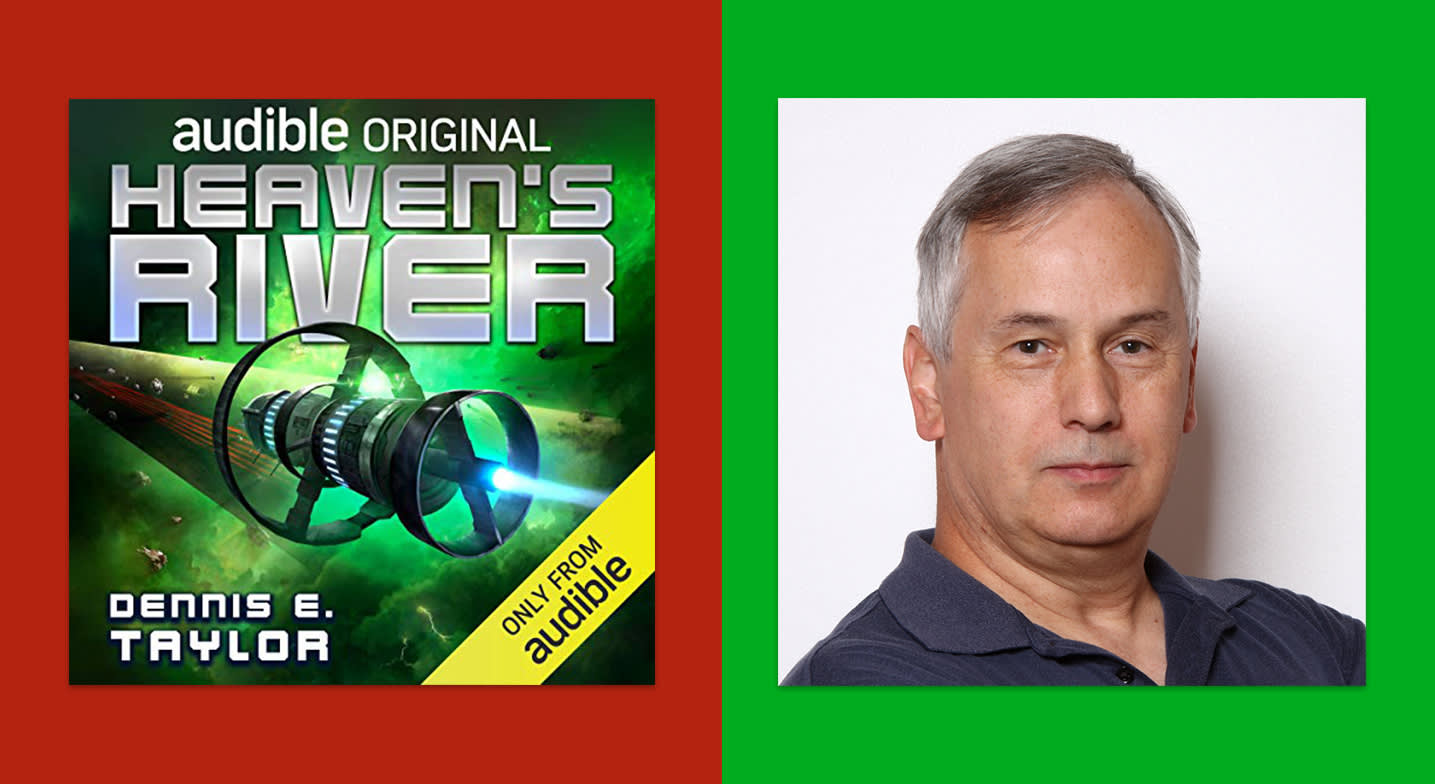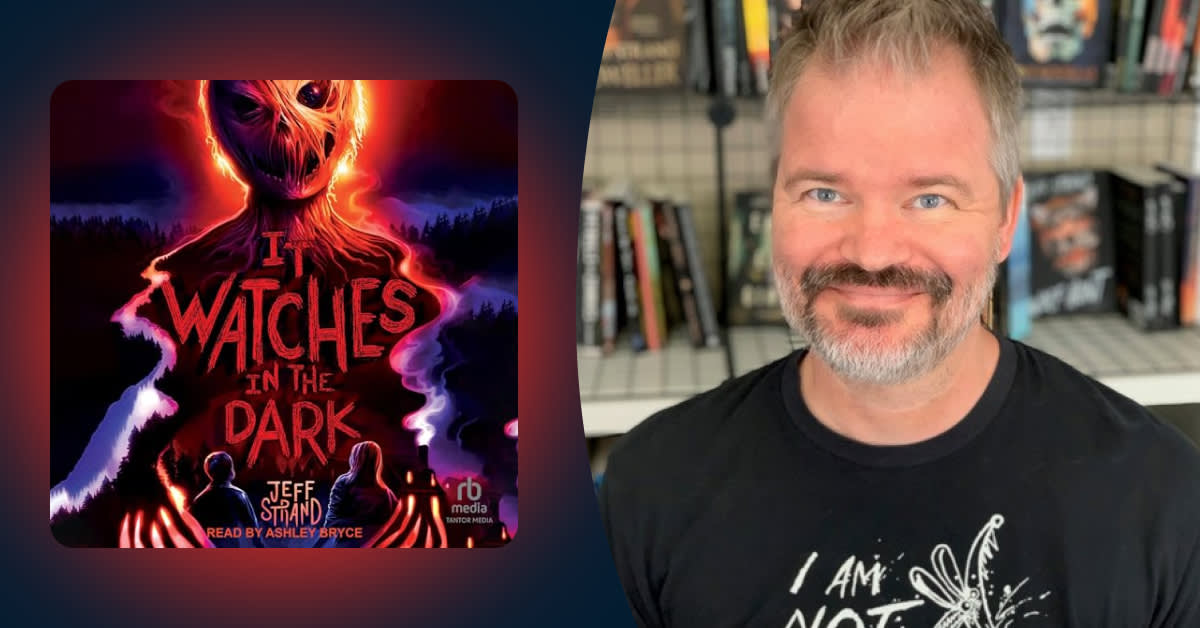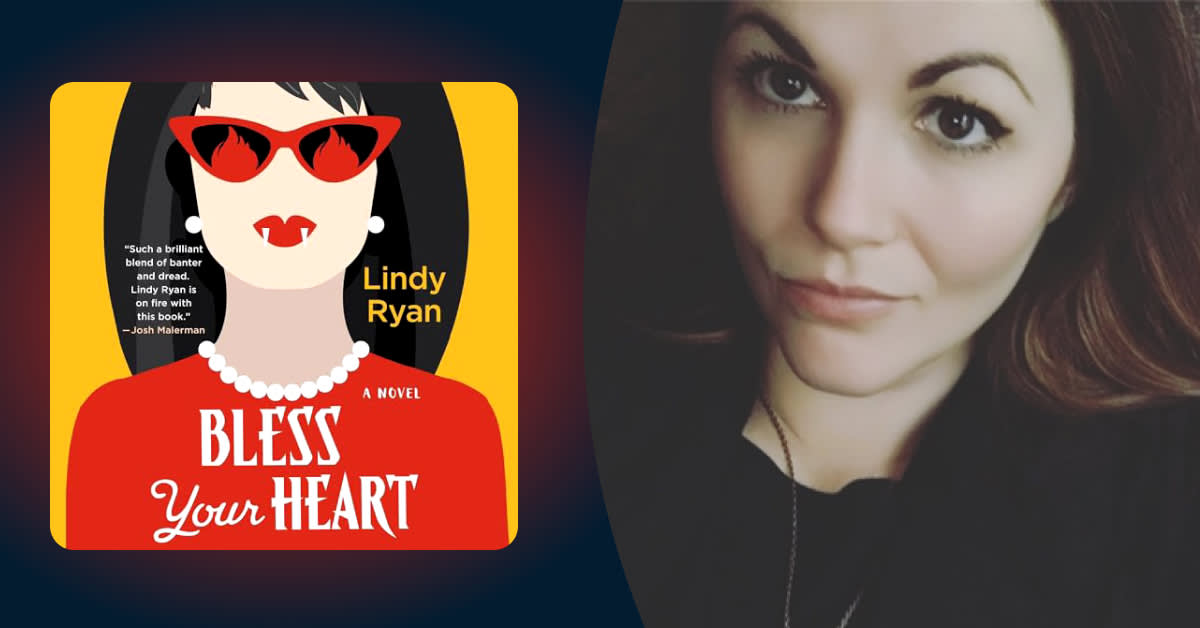Note: Text has been edited and may not match audio exactly.
Steve Feldberg: Hi, this is Steve Feldberg of Audible Originals. I'm immensely pleased to be chatting with Dennis E. Taylor, who is the author of the wildly popular Bobiverse series, along with The Singularity Trap and Outland. The latest in the Bobiverse series is the brand-new Heaven's River, which was performed by the inimitable Ray Porter. Dennis, first things first, congratulations on Heaven's River making The New York Times audio best-seller list.
Dennis E. Taylor: Thank you. That's one of a lot of really pleasant surprises on this one.
SF: You're a New York Times best-selling author. You can say that until forever. Until you go out in space as a clone.
DT: Well, hopefully I'll be able to get on that list again. It's a nice thing. And I'd like to repeat it.
SF: Yes, you and us both. I want to start out with, I think your fans might be interested to learn what you did for a living pre-Bobiverse.
DT: For most of my life, I was a computer programmer at various levels. From front-line grunt all the way up to upper management, but always in IT. So, that's my background, that's my interest. That's where my personality goes, programming,
SF: But you don't do that anymore, right?
DT: Not professionally. I mean, I still do it on a hobby basis. I've got a few small projects going, but nothing concerted.
SF: So you could be my personal geek squad. I'm going to call you up when I have a problem?
DT: Yeah, maybe not. I'm a little out of practice now. Actually, I need my own geek squad now. I need to find a network specialist.
SF: I'm curious, at what point did you realize that this writing thing could actually be your job?
DT: February 2017.
SF: What happened then?
DT: That's when the first Audible payment came in for We Are Legion. And it was eye-opening. And I started to realize that this is an income. This is an actual viable means of paying the mortgage and stuff. When [my wife] Blaihin and I were talking about the upcoming release of We Are Legion, when we were talking about things like, well, wouldn't it be great if we brought in a couple of grand a month or something. And we could pay down our Visa a little quicker, and stuff like that. It was still being looked at as what you'd call coffee money. But the reality just blew me away.
SF: So did you quit your job? Did you call up and say I'm done, I'm not going to be an IT guy anymore?
DT: Not quite that quickly, but I did retire. I officially retired.
SF: Your first published work was actually Outland, which you later revised for the Audible Originals edition. Was that your first attempt at writing a novel? Or is there some secret lost novel locked in a drawer somewhere?
DT: No, that was literally my first attempt at serious writing. And it wasn't even serious writing when I started, I just wanted to see if I could even do it.
SF: And you just decided, "I'm going to just go for this. I'm going to put this out there, and see what happens," and then what?
DT: It went by stages. My wife basically dared me to try writing a novel, based on a conversation we were having. And I started writing Outland. And I figured worse comes to worst, I'll stop after a couple of chapters. But I kept going and going and going, and suddenly I had a novel. And then I had to figure out how you go about self-publishing on Amazon, which was an adventure in and of itself. I think it took me seven months to go from finishing the novel to actually having it published. And I put it up on Amazon. And, well, it did make coffee money.
SF: And your coffee's a lot less expensive up there [in Canada] than it is here.
DT: Yeah. I don't drink specialty coffees.
SF: It's interesting. I think people hearing about your background in computers and programming and such will make the connection to the Bobiverse, and see where that knowledge came from, and how that could spin itself off into an idea for a series of books. But was there a specific kind of aha moment where the idea for the Bobiverse hit you?
DT: Bobiverse evolved. It started out as me reading A World Out of Time by Larry Niven, which I loved. But there were some directions that he took that I found a little disappointing, like the protagonist comes back to the solar system and spends most of the book banging around in our solar system. I wanted him to stay out there and do stuff. So I started out with the idea of writing a version of that where the protagonist gets out there, and then I thought, well, if he's not alive, if he's just a computer program, then he can replicate himself. He doesn't have to worry about age, he doesn't have to worry about disease, stuff like that. And it just kept evolving. There were suggestions from you, there were suggestions from [my agent] Ethan, on improvements that I could make. It started out in third person, then I changed it to first person, because it felt more immediate. The VR system I put in because the first version was just a bunch of talking heads, and there wasn't anything visual about it. So it snowballed.
I'll do more than hint. I'm going to keep writing all the Bobiverse books as long as fans are willing to keep reading them or listening to them.
SF: I think you mentioned the VR that the Bobs have and the moods that they have and all that, which to me is probably the most charming part of the series. Because you very easily could have this group of intelligent ships out there just going their own way and not interacting. And that was an ingenious way to bring them all together and have them interact. And even being able to jump around in timelines, because you can have them in different places but eventually still meet up. It also seems a little bit, I always thought, inspired by the Holodeck and Star Trek, but then I wonder if I'm on target there.
DT: I think that the Holodeck itself is an outgrowth of a lot of the ideas that have been in science fiction for quite a while. The idea of virtual realities have been around a long time. And unfortunately, usually when they invoke virtual reality in a book, or a movie, or a TV show, or something like that, they have this thing if you die in VR you die in real, because you've got to have real stakes in order for the audience to care about the person. I wanted to avoid clichés like that because it never made sense to me, and I doubt it makes sense to most fans. So most of the danger happens in real. The VR is just there for them to have conversations and you set up some little comic relief and stuff.
SF: And one of the things I love about the Bobiverse books is how you handle the existence of clones and Bob's clones. I mean, you have clones that could be just precise carbon copies of the original. But you didn't do that, and as we all know, as fans know, as the series progresses, we see more and more clones and each one develops his own personality. It's very Orphan Black in that way if people have seen Orphan Black. But you definitely also seem to take a stance of nurture over nature, that their experiences are what shapes each of the Bobs. Is that how you see it? Do you see it that this is why each one of them develop so differently?
DT: Well, as explained in Heaven's River, there's actually an explicit reason why you get replicative drift. But regardless, I do think that even if each Bob started out exactly identical, they would diverge over time. Like Hal got blown up twice. Getting blown up twice will affect you.
SF: I know it does me.
DT: Yeah, that's right. There are so many minor and major things that happen to each of the Bobs that are so different, that just produce a different person in the end. And the replicative drift just makes it worse.
SF: Yeah. And of course this makes for a much richer universe that you've created, where you have these characters who are in essence the same, but in behavior and in experience are very different. And as you mentioned, this idea of replicative drift really comes into play in Heaven's River in a big way. Because right now many, many, many years down the road in the evolution of the Bobs, it's very clear that some of them, I think, don't see themselves possibly as even being Bobs anymore.
DT: It's hard to imagine how that would transpire in your mind. Because if you think about any particular clone 24 generations, somewhere down the way, call him Richard or something, he has a continuous memory all the way back to original Bob. So he doesn't think of himself as a 24th generation clone necessarily. He thinks of himself as Bob having gone through several clonings and 300 years of experience. But each cloning will have made him slightly different than original Bob.
SF: And this is where the conflict in Heaven's River comes from. We don’t want to give too much away to people who haven't listened to it yet. But this is the essence of the conflict. I mean, it's really a beautiful book in that it works on two levels. One is it's a very big, broad space adventure where they come on this new world and have an adventure there. But it also is very character driven, in that the Bobiverse is threatening not to be the Bobiverse, a unified Bobiverse anymore. And again, without spoiling it too much, that's where I see the real interest in the book and where we might be going from here on out.
DT: Yeah. It's entirely possible for me to paint myself into a corner with the Bobiverse. If I was to keep the Bobs too similar, if I was to keep the virtual reality Bobiverse too pure, and good, and best-of-the-best kind of thing, I could end up with a situation where there's simply not enough conflict. And then the stories become mostly about going out exploring strange new worlds and new civilizations, which is not a terrible thing; a lot of my fans like that. But it's very one-dimensional. Once you start introducing schisms in the Bobiverse, factions in humanity, throw in a couple of alien races that aren't necessarily friendly anymore, and now you have lots of opportunity for a lot of things to happen.
SF: Another aspect of the series that I find really impressive is that there is a lot of science in these books. I mean, a whole lot of science. And not only in the Bobiverse books, but Outland is really a science-based book in a lot of ways. The Singularity Trap very much so. My first reaction is that you must have really paid attention in physics class at some point in your life.
DT: I've always been a nerd. Maths and sciences were my favorite subjects, always have been. I've always read Scientific American, and followed sites like phys.org and physicforums.com and stuff like that. Very interesting places for finding out about new information.
SF: So when you inject all the science into writing, do you have experts who you turn to, to vet what you've done and say, "Is this physics possible? Could the massive artificial world in Heaven's River as you've created it actually exist? What would it be like?" How do you actually go through that process of not only incorporating, knowing the science to begin with, but making sure that it makes sense even in a science fictional setting?
DT: Well, two things that I've specifically done to make sure I got things right was physicsforums.com, which I mentioned before. That's a forum website that's heavily populated by actual physicists, PhD physicists and stuff like that. And it has a large student membership as well. People checking on things. But I posted a question about blowing up a sun for one of the climaxes of All These Worlds. And we actually had a fair bit of back and forth before somebody finally sat down and calculated whether or not a planet or a couple of planets smacking into a sun could do anything to the sun. The guy came back and again, like I said, this is a PhD physicist. He comes back and says, "Yeah. Stars are not very dense. The planets actually would penetrate to quite a distance." So bang, suddenly I have a way to blow up the others.
SF: That's pretty good because it's not the kind of experiment that you could actually do in a lab.
DT: Yeah, that's very much a paper experiment. Heaven's River was vetted by Isaac Arthur, from the Science & Futurism with Isaac Arthur website. He's big on things like megastructures and so forth. So he was one of my main beta readers for that. And he had a few suggestions, but for the most part, I pretty much nailed it.
SF: And so, what we're concluding is that you're incredibly smart, and it gets confirmed every time you write a new book.
DT: No, I just read a lot, first. I am incredibly anal is what I am.
SF: That's a good quality. I think you would agree that all of your writing, but particularly the Bobiverse books, presents a unique challenge for a narrator, who has to portray the same character in dozens of ways. So that they're all the same character, but they’re different characters. And each one has a distinct voice. I would guess that you would agree with me that Ray Porter was the perfect narrator for the job.
DT: Yes. He has an additional quality, I think, that helps him. Which is that he has a very conversational tone, or at least he's capable of having a very conversational tone, very informal, and he can give the inflection that you need for sarcasm, confusion, and humor. Even above and beyond the fact that he can do different people, he has the range to really portray the attitudes and emotions in the book.
SF: As you know, my first experience with Bobiverse—it was a very lucky experience—was to read the manuscripts as you were writing them, and edit them, and all that. And I then listened to it later, because I had read them. And it really was a case of where the audio experience to me was just a so much different experience from the reading that when I was reading them for the first time. Believe me, I was thinking about "How's anyone going to pull this off as far as narrating these goes? Because they're just such subtle differences between the characters." And then when I heard the first book, We Are Legion, in audio for the first time, I just thought, "This is a perfect marriage right here. We have somebody who's got an incredibly inventive mind, who's come up with this world and how to propagate this character throughout the universe." And then we found somebody who actually gets it, who's not just reading stuff, but really gets it and absorbs it, and just brought it to life to me in an amazing way.
DT: Yeah, and Ray told me that he had a lot of fun recording the Bobiverse books, which can't help but help.
SF: And he does a bang-up job on Heaven's River, of course. So now that we’re four books into the Bobiverse, I think the biggest question fans will have is, is there more to come? And you've hinted at that, that it is an endless universe to explore.
DT: I'll do more than hint. I'm going to keep writing all the Bobiverse books as long as fans are willing to keep reading them or listening to them. There's an infinite supply of ideas out there both for novels and maybe for a collection of short stories. For just smaller little things that happen in the Bobiverse. Tales from the Bobiverse.
SF: We can call them Boblets?
DT: Yeah, sure.
SF: A whole bunch of Boblets. And can you give us the very slightest hint what you're working on right now? We've put out there that there's more Bobiverse to come at some point. But again, without too many spoilers, maybe you could tell your fans and everyone listening what you're working on now.
DT: I have two books that I'm working on all alternately. One is the sequel to Outland, and there's a small but vocal fan base for Outland. And they keep asking me, and unfortunately, I've been promising it for about four years now, so I figure I'm obligated. Earthside is, I think, about three quarters done at the moment. And the other book is brand new, not related to anything, and the working title right now is Roadkill. And that is a stand-alone novel, although my books have a tendency to draw requests for sequels. So "stand-alone" is in quotes. But it's called Roadkill, and it's about a guy who runs over an invisible alien and then finds the alien spaceship and then hilarity ensues.
SF: Something that's happened to many of us in the course of our lives.
DT: Don’t you hate it when that happens? You run over an alien and you have to take your car into the shop?
SF: I know. And the insurance company would just, it's a great excuse to the insurance company when you literally didn't see the guy coming.
DT: There you go.
SF: We're going to look forward to that. Dennis, thank you very much for talking with us. Before we go I should mention that Audible Originals is going to be presenting a brand-new short story by Dennis, titled Feedback. Also narrated by Ray Porter, I'm happy to say. It's going to be out on November 19. And good news for our members, it's going to be available as part of your membership in the Audible Plus Catalog. And having had the pleasure of reading it, it's a fun, fun story. It's a time travel story and I think folks are really going to like it. So, Dennis, thanks very much for chatting with us today.
DT: Thanks for having me on.







